Determined Reporter, Talk Show Host Played Roles
From Nov. 24:
Reporting Helps Free Long-Held Innocent Man:
Kansas City Star Undertook Its Own Investigation
‘Groveton Four’ Exonerated in 1949 Case
Grady’s Name to Remain on UGA J-School
Billingsley Honor Is a First for Black Cartoonists
Short Takes: Kevin Lightfoot; Facebook and race; “food apartheid”; Columbia Journalism School; Scott M. Mills; Canadian pipeline arrests; Univision’s “Despierta America”; Fernando González; “Black and Missing”; Vincent Chin; “The Press in Prison”; journalist killed in suicide bombing; Native perspective on Thanksgiving.
Homepage photo: Celebrating the verdict in the murder of Armaud Arbery (Credit: ABC News)
[btnsx id=”5768″]
Ali Velshi said “Amen” to the #SupportLocalJournalism slogan repeated by the Brunswick News, “The world needs trustworthy reporting. But good journalism isn`t free.” (video)
Determined Reporter, Talk Show Host Played Roles
Were it not for a dogged newspaper reporter in coastal Brunswick, Ga., and a talk radio broadcaster in the same town, it is unlikely that justice would ever have been meted out in the murder of Armaud Arbery.
“In the small coastal Georgia town of Brunswick, rumors swirled about a Black man who was shot while being pursued by two armed White men in a pickup truck, but no one was charged and the case received little attention nationally,” Meryl Kornfield wrote Wednesday in The Washington Post, recounting the Feb. 23, 2020, shooting.
“It wasn’t until May 5, when a local radio station uploaded graphic footage of the deadly chase, that widespread outrage ensued. Two days later — 74 days after Arbery was killed while on a jog — arrests were made.
“The convictions of Travis McMichael, 35, his father, Greg McMichael, 65, and their neighbor William ‘Roddie’ Bryan, 52, on Wednesday raised recollections of the beginning of the case when police let the men walk free and two prosecutors did not press charges. Yet, after just two days of deliberations, the jury found the three men guilty of murder and other charges for the pursuit and fatal shooting of Arbery.”
Ali Velshi, substituting for Rachel Maddow on her MSNBC show Wednesday, told viewers, “Over the past few years journalists have increasingly been forced to question official police accounts. In June of 2020, three months after Breonna Taylor was killed, police in Louisville, Kentucky, released a nearly blank report omitting that she was shot eight times by police.
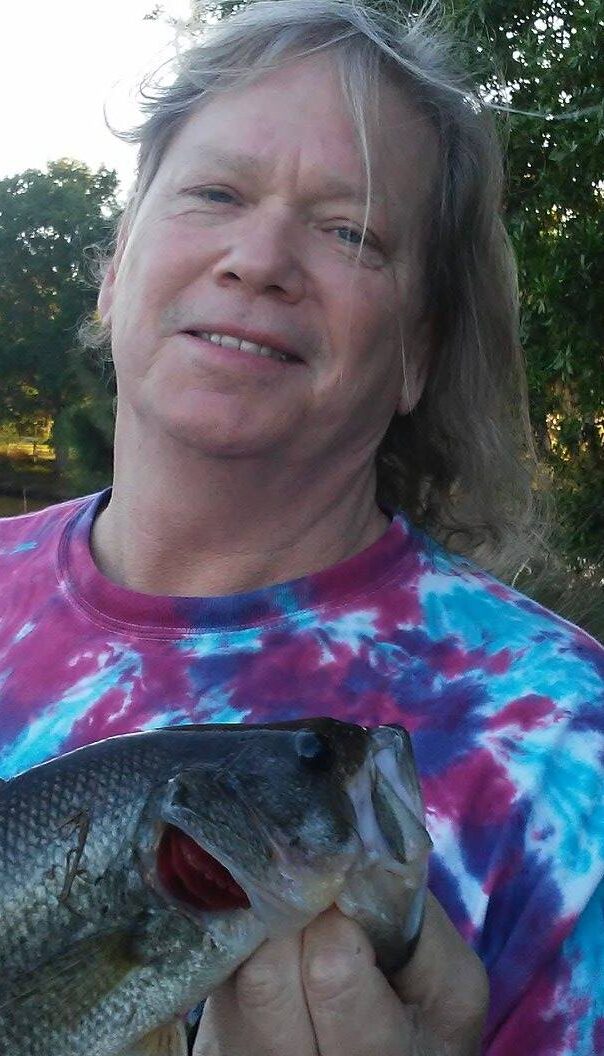 “The month before, when George Floyd was killed, Minneapolis police failed to initially report that Derek Chauvin knelt on Floyd’s neck for more than eight minutes. And when Ahmaud Arbery was killed near Brunswick, Georgia, last year, seasoned local journalist Larry Hobbs (pictured) of the Brunswick News knew that he needed to push for information because the police weren’t sharing enough.
“The month before, when George Floyd was killed, Minneapolis police failed to initially report that Derek Chauvin knelt on Floyd’s neck for more than eight minutes. And when Ahmaud Arbery was killed near Brunswick, Georgia, last year, seasoned local journalist Larry Hobbs (pictured) of the Brunswick News knew that he needed to push for information because the police weren’t sharing enough.
“So instead of relying on official statements, Hobbs filed a public records request. As Hobbs told this show today, the less answers you give us, the more questions we ask. Accordingly, he started to ask police, quote, why a young man was shot dead in the middle of a sleepy neighborhood on a Sunday afternoon? Why an unarmed burglary suspect is shot dead in the middle of a public street and not, say, inside a burgled home?
“Also, was there a conflict of interest since one of the suspects previously worked for the district attorney?
“Well, his curiosity paid off. The public record request that Hobbs filed allowed him to obtain a police report containing the first preliminary answers as to how and why Arbery was killed. He published his findings on April 2nd, 2020. It was the first time America and perhaps Arbery`s family got a better picture of what happened.”
Hobbs, a crime reporter, continued to follow the story. A month after his initial report came another break.
As Bert Roughton Jr. and Brad Schrade would write May 17, 2020, in the Atlanta Journal-Constitution, “On May 4, more than two months after the shooting, attorney Alan Tucker took a thumb drive containing a video clip to a Brunswick radio station. It showed the shooting in graphic detail.
 “ ‘It almost steals your soul to watch that video,’ morning show host Scott Ryfun (pictured) said.”
“ ‘It almost steals your soul to watch that video,’ morning show host Scott Ryfun (pictured) said.”
In addition to his hosting job at WGIG in Brunswick, Ryfun is vice president of programming at iHeart Brunswick, which has five stations in the market.
“I consulted two members of the Black community before I released the video, both of whom are very politically astute and one of whom is a community leader,” Ryfun messaged Journal-isms on Friday. “The leader has always asked that I not share his identity. . . .”
The AJC continued, “ ‘Do I put that out?’ Ryfun asked himself.
“Ryfun, who is white, and the civic leader, who is black, watched the tape together, mostly in silence.” They compared the tape to a letter from George Barnhill, the district attorney in neighboring Ware County, which was providing backup in the case, saying he found no cause for arrest.
“ ‘That’s not what I saw,’ the civic leader said.
“Arbery was black. The McMichaels are white.
“Ryfun posted the video on May 5. The station removed it within two hours, deeming it too graphic. But that was enough time to change everything.”
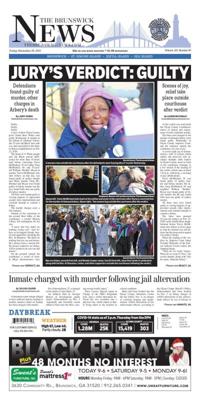 Tucker told Sarah Mervosh of The New York Times last year “that the video had come from the cellphone of a man who had filmed the episode and that he later gave the footage to the radio station. Mr. Tucker’s role was confirmed by Scott Ryfun, who oversees the station’s programming.
Tucker told Sarah Mervosh of The New York Times last year “that the video had come from the cellphone of a man who had filmed the episode and that he later gave the footage to the radio station. Mr. Tucker’s role was confirmed by Scott Ryfun, who oversees the station’s programming.
“Asked why he had leaked the video, Mr. Tucker said he had wanted to dispel rumors that he said had fueled tension in the community. “It wasn’t two men with a Confederate flag in the back of a truck going down the road and shooting a jogger in the back,” Mr. Tucker said.
“It got the truth out there as to what you could see,” he added. “My purpose was not to exonerate them or convict them.”
Bryan recorded the video; he gave it to the police before he also gave it to Tucker, the Times said. “Yet it was arguably the outrage which came in the wake of the video that led higher authorities to finally act after the original officials on the case were scolded for not doing enough,” Aaron Keller wrote May 9, 2020, for Law & Crime.
Bryan was found guilty of felony murder, as were his co-defendants, the McMichaels.
In an understatement, NYU Law Prof. Stephen Gillers told Law & Crime, “It was certainly not in the McMichaels’ interest” to have a lawyer with whom the eventual defendants consulted “disclose the video to a news outlet.”
As for Hobbs, he wrote on Facebook on Wednesday, “On so many occasions, this strange and exotic and beautiful place called the South that I love so much has come up wanting in times of reckoning. (This certainly holds true for a certain Southern demographic, of which I am a member.) Today, Nov. 24, 2021, in a town called Brunswick on the Georgia Coast, was not such an occasion. I do not usually post newspaper stories from my day job here, but I am making an exception. Tomorrow, I think I will go fishing. Peace, y’all. ✌?✌”
Ryfun messaged Friday, “It’s been bizarre to see all of this unfold on a national level simply because I clicked ‘upload.’ My worry initially was that it could do more harm than good, because I knew people would be angry when they saw it, and I wasn’t sure if the power structure in this town would relent to allowing a proper examination of this tragedy.
“Ultimately they had no choice. I didn’t sleep or eat much the first two days, but when the state issued arrest warrants that Thursday, I knew the right thing had been done and I believed it would result in justice.”
- Issac Bailey, CNN: It shouldn’t have taken all this to convict Ahmaud Arbery’s killers
- Charles M. Blow, New York Times: Guilty, Guilty, Guilty
- Brakkton Booker, Politico: The uncomfortable truths hidden inside the Ahmaud Arbery verdict
- Erwin Chemerinsky, Los Angeles Times: Justice is done for Ahmaud Arbery, but a legacy of racial injustice can’t be answered in one verdict
- Jelani Cobb, New Yorker: Justice for Ahmaud Arbery
- Richard Fausset, New York Times: How a Prosecutor Addressed a Mostly White Jury and Won a Conviction in the Arbery Case
- Carla Hall, Los Angeles Times: Who didn’t feel like Arbery’s father when he uttered his outburst over the verdicts?
- Valerie Fields Hill, Texas Metro News: Arbery verdict stuns some North Texans
- Rich McKay, Reuters: Factbox: Timeline of the Ahmaud Arbery case
- Areva Martin, CNN: Jurors saw through the preposterous defense by Ahmaud Arbery’s killers
- Lauren McDonald, Brunswick (Ga.) News: Scenes of joy, relief take place outside courthouse following verdict
- Noreen Nasir, Sudhin Thanawala and Adam Geller, Associated Press: 2 trials, 1 theme: White men taking law into their own hands
- Leonard Pitts Jr., Miami Herald: Arbery verdict brings relief. Still, for some of us, justice is an unreliable ally
- Eugene Robinson, Washington Post: The guilty verdicts against Ahmaud Arbery’s killers are justice for a lynching
- Janell Ross, Time: What Ahaud Arbery’s Death Has Meant for the Place Where He Lived
- Adam Serwer, the Atlantic: The System Only Worked Because It Was Pushed
- Zach Stafford, MSNBC: Ahmaud Arbery’s Killers Being Found Guilty Brings Small Measure of Relief
- Kimberly Atkins Stohr, Boston Globe: Some justice in the murder of Ahmaud Arbery. But there is still so far to go.
Reporting Helps Free Long-Held Innocent Man
Nov. 24, 2021
Kansas City Star Undertook Its Own Investigation
‘Groveton Four’ Exonerated in 1949 Case
Grady’s Name to Remain on UGA J-School
Billingsley Honor Is a First for Black Cartoonists
Short Takes: Kevin Lightfoot; Facebook and race; “food apartheid”; Columbia Journalism School; Scott M. Mills; Canadian pipeline arrests; Univision’s “Despierta America”; Fernando González; “Black and Missing”; Vincent Chin; “The Press in Prison”; journalist killed in suicide bombing; Native perspective on Thanksgiving.
[btnsx id=”5768″]
After 43 years, Kevin Strickland left prison Tuesday after judge vacated his conviction in a 1978 triple murder. Strickland, who said he was in disbelief, was freed from prison after the seventh-longest wrongful imprisonment confirmed in U.S. history. (Credit: Tammy Lijungblad/Kansas City Star)
Nov. 26 update: Nearly $1.2 million raised from donors around the world to aid Kevin Strickland (Kansas City Star)
Kansas City Star Undertook Its Own Investigation
“A Kansas City man who was jailed for more than 40 years for three murders was released from prison Tuesday after a judge ruled that he was wrongfully convicted in 1979,” Heather Hollingsworth and Margaret Stafford reported for the Associated Press. A major share of the credit goes to reporting by the Kansas City Star.
It was the seventh-longest wrongful imprisonment confirmed in U.S. history, according to the Star.
“Kevin Strickland, 62, has always maintained that he was home watching television and had nothing to do with the killings, which happened when he was 18 years old,” the AP reporters wrote. “He learned of the decision when the news scrolled across the television screen as he was watching a soap opera. He said inmates began screaming.
“ ‘I’m not necessarily angry. It’s a lot. I think I’ve created emotions that you all don’t know about just yet,’ he told reporters as he left the Western Missouri Correctional Center in Cameron [Mo.]. ‘Joy, sorrow, fear. I am trying to figure out how to put them together.’ “
 Strickland had maintained his innocence from the beginning. The case against him “was ‘thin from its inception’ and relied almost entirely on the testimony of a traumatized woman who was shot during the murders, prosecutors now say,” Luke Nozicka (pictured) and Matti Gellman reported for the Star. But that was not enough to free Strickland.
Strickland had maintained his innocence from the beginning. The case against him “was ‘thin from its inception’ and relied almost entirely on the testimony of a traumatized woman who was shot during the murders, prosecutors now say,” Luke Nozicka (pictured) and Matti Gellman reported for the Star. But that was not enough to free Strickland.
As the Star’s Nozicka, Robert A. Cronkleton and Tammy Ljungblad reported Tuesday, “Strickland’s innocence was the focus of a September 2020 investigation by The Star, which interviewed more than 20 people, including two men who admitted guilt and swore Strickland was not with them and two other accomplices during the killings. The Star also reported that the lone eyewitness to the murders, whose testimony was paramount in the case against Strickland, told relatives she wanted to recant her identification of him and believed she helped send the wrong teenager to prison.
“Jackson County prosecutors began reviewing Strickland’s conviction in November 2020 after speaking with his lawyers and reviewing The Star’s investigation.”
In May, Jackson County, Mo., Prosecutor Jean Peters Baker’s office “announced that Strickland is ‘factually innocent’ in the April 25, 1978, triple murder at 6934 S. Benton Avenue in Kansas City and should be freed immediately. . . .”
Jackson County’s prosecutors determined that Kevin Strickland, who’s spent 40+ years in prison for a 1978 triple murder, is innocent. The Midwest Innocence Project filed a petition to overturn the conviction. (Credit: Jill Toyoshiba/Kansas City Star)
There is more to editorialize about.
“Asked what he thought about the criminal justice system, Strickland said it ‘needs to be torn down and redone. ‘It don’t work,’ he said. ‘I mean, it work here in the long run, but it took 43 years to get here.’ ”
Moreover, Strickland “will not receive any compensation from the state for his more than 42 years behind bars,” Nozicka and Katie Moore reported.
“That’s because Missouri’s compensation law only allows for payments to prisoners who prove their innocence through a specific DNA testing statute. That was not the case for Strickland, or most exonerees across America. Unlike guilty prisoners, a parole officer will not help Strickland find counseling, housing or work. And unlike exonerees in some other states, he will not be eligible through a compensation package for social services, such as participating in the state’s healthcare program.”
“If you want to pitch in to help Strickland begin building back his life, the Midwest Innocence Project coordinated a GoFundMe fundraiser where you can donate. So far, people have donated more than $70,000, which comes to about $1,666 for each year he was wrongfully incarcerated,” wrote the Star’s Nozicka and Allison Dikanovic.
The Star followed its reporting with editorials.
‘”Gov. Mike Parson not pardoning Kevin Strickland shames MO,” read one headline from July 3, adding, “No pardon for Kevin Strickland, whose continued incarceration is a national shame.”
A Sept. 22 headline asked, “Are Missouri politics keeping an innocent man in prison?”
Rachel Maddow, MSNBC’s No. 1 personality, held up copies of the Star’s stories on its investigation on her show Tuesday night. “The Midwest Innocence Project, the Kansas City Star and, remarkably, the local prosecutor’s office finally got him free today“ (video), she said.
Online, Maddow was joined in her kudos to the Star by Tony Messenger, Pulitzer Prize winning Metro columnist for the St. Louis Post-Dispatch, and former editorial page editor there. Messenger tweeted his congratulations.
Amazing work by @LukeNozicka that played a massive role in #KevinStrickland being released from prison today. Some of the most important journalism out of Missouri in the past 2-3 years. Thank you @KCStar for your commitment and support of his work. Support your local newspaper.
— Tony Messenger (@tonymess) November 24, 2021
There is more to editorialize about.
“Asked what he thought about the criminal justice system, Strickland said it ‘needs to be torn down and redone.’“It don’t work,” he said. “I mean, it work here in the long run, but it took 43 years to get here,” the Star reported.
Moreover, Strickland “will not receive any compensation from the state for his more than 42 years behind bars. That’s because Missouri’s compensation law only allows for payments to prisoners who prove their innocence through a specific DNA testing statute. That was not the case for Strickland, or most exonerees across America, Nozicka and Katie Moore reported.
“Unlike guilty prisoners, a parole officer will not help Strickland find counseling, housing or work. And unlike exonerees in some other states, he will not be eligible through a compensation package for social services, such as participating in the state’s healthcare program.
“If you want to pitch in to help Strickland begin building back his life, the Midwest Innocence Project coordinated a GoFundMe fundraiser where you can donate. So far, people have donated more than $70,000, which comes to about $1,666 for each year he was wrongfully incarcerated,” wrote the Star’s Nozicka and Allison Dikanovic.
The Star editorialized Wednesday, “Kevin Strickland gets a measure of justice, but Missouri needs to write him a check”
- Matti Gellman and Luke Nozicka, Kansas City Star: ‘She was heard’: Friend says of eyewitness who pushed for Kevin Strickland’s freedom
- Luke Nozicka and Matti Gellman, Kansas City Star: ‘Overwhelmed’: Kevin Strickland plans to take one day at a time after wrongful conviction
- Luke Nozicka, Kansas City Star: What to know about Kevin Strickland and his 40-year fight for freedom
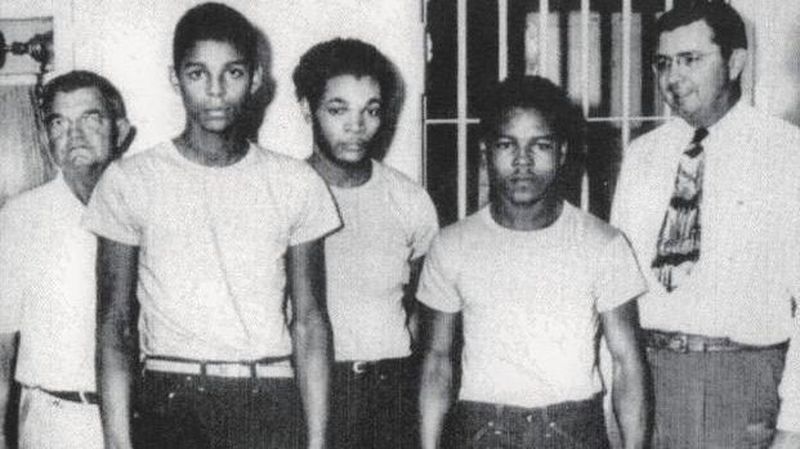
‘Groveton Four’ Exonerated in 1949 Case
“Four Black men wrongly charged with raping a white woman more than 70 years ago in Florida were exonerated on Monday, bringing an end to a saga that has shadowed their families for decades,” Amanda Holpuch reported Monday for The New York Times. The four had been pardoned in 2019.
“The accused — Charles Greenlee, Walter Irvin, Samuel Shepherd and Ernest Thomas, known as the Groveland Four — died before Florida officials re-examined the case, which a prosecutor said lacked due process and would not be tried today.
“It all began on July 16, 1949, when a 17-year-old white woman and her estranged husband told the police that after their car broke down in Lake County, Fla., the four men had stopped to provide help, then took the woman from the car and raped her.
“The accusation left a trail of destruction. Mr. Thomas was killed by a mob after fleeing Lake County. Mr. Irvin and Mr. Shepherd, both of whom were World War II veterans, were shot by Willis McCall, the Lake County Sheriff, while they were being taken to a pretrial hearing before their cases were retried in 1951. The sheriff claimed that the men, who were in handcuffs, had tried to escape. . . .”
In 2019, the Orlando Sentinel posted an apology for its complicity.
“We’re sorry for the Orlando Sentinel’s role in this injustice. We’re sorry that the newspaper at the time did between little and nothing to seek the truth. We’re sorry that our coverage of the event and its aftermath lent credibility to the cover-up and the official, racist narrative.
“We’re sorry that reporters and editors failed in our duty to readers, to the community and to the Groveland Four and their families. . . .”
Widespread interest in the Groveland Four was renewed in 2012 by Gilbert King’s Pulitzer Prize-winning book, “Devil in the Grove: Thurgood Marshall, the Groveland Boys and the Dawn of a New America.”
- Kathy Roberts Forde and Sid Bedingfield, Nieman Reports: “Journalism and Jim Crow: White Supremacy and the Black Struggle for a New America” highlights the press as an important, non-neutral actor during the Jim Crow era
- Will Sutton, NOLA.com: Here’s two people who helped Homer Plessy get an overdue pardon.
- Deena Zaru and Kiara Alfonseca, ABC News: Her father was one of Groveland Four. 72 years later, she helped clear his name
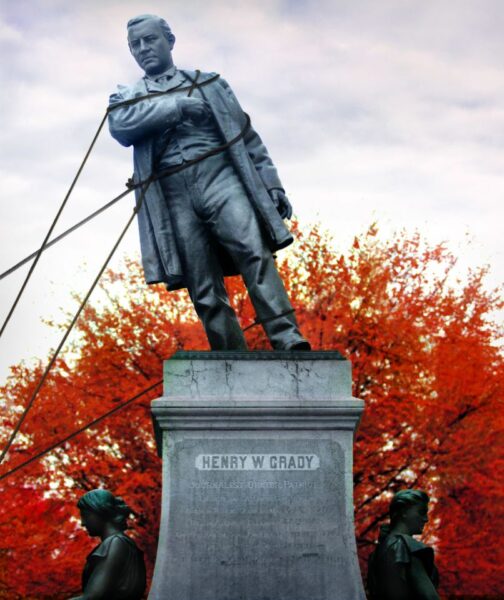
Grady’s Name to Remain on UGA J-School
The Georgia Board of Regents decided Monday it would not move forward with an advisory group’s recommendations to rename more than six dozen buildings and colleges on public university campuses statewide, including the journalism school at the University of Georgia, named for Henry W. Grady.
Grady, editor of The Atlanta Constitution after the Civil War, has been described as a cheerleader for the reconstruction of Atlanta and the “New South.” “Critics, though, say some of his speeches and writings supported white supremacy,” Eric Stirgus wrote Monday for The Atlanta Journal-Constitution.
“The board’s decision was criticized by several people who pressed in recent months for the changes, saying many buildings are named after slave owners and segregationists. One group that wanted the name of Henry W. Grady removed from the University of Georgia’s journalism and mass communications school, called the decision ‘not surprising.’
“ ‘It demonstrates to us the board’s support of racism and the upholding of white supremacy,’ the group, #RenameGrady, said in a statement. ‘This failure signals a willful ignorance of the history of people of color and a disregard for the physical, emotional, and mental well-being of (Black, Indigenous, People of Color) students who have to walk the halls of these institutions every day.’ . . .”
Last year, two alumnae circulated a petition to rename the school after Charlayne Hunter-Gault (scroll down). “We “demand that you take the necessary steps to rid the journalism & mass communication college of its association with this racist, white supremacist, and we strongly recommend that you consider renaming the college after one of its most storied graduates — award-winning journalist Charlayne Hunter-Gault, who courageously integrated this University in 1961, ” they wrote. The petition gathered more than 9,100 signatures.
- Jake Drukman, Red and Black, University of Georgia: USG will not rename buildings or colleges despite committee recommendations
- Jonathan Edwards and Timothy Bella, Washington Post: Thomas Jefferson statue removed from New York City Hall after complaints that it honored an enslaver
Billingsley Honor Is a First for Black Cartoonists
“Ray Billingsley (pictured) didn’t much like his second-floor Harlem home on Bradhurst Avenue back then,” Michael Cavna reported Monday for The Washington Post. “It was affordable — this being the mid-’80s — but he felt isolated, and he knew crime was a threat: ‘One evening while in bed with the window open, I actually heard three guys planning on burglarizing my apartment.’
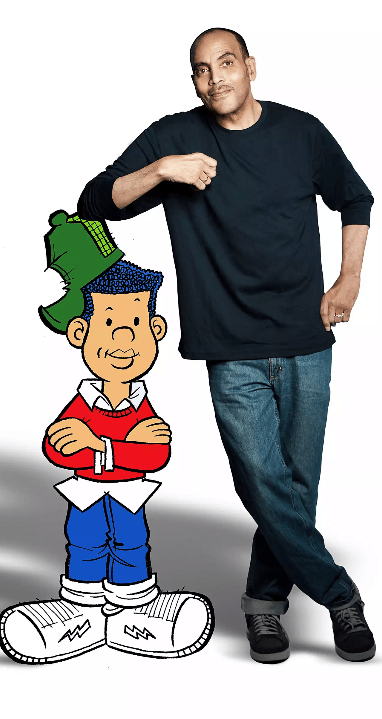 “Yet this setting was also where, later that night after going to bed, Billingsley drew inspiration. He awoke with a creative burst. ‘I had a vision of these two kids. I sketched them down in the dark and went back to sleep. That morning, I found the first images of Curtis and Barry.’ . . .”
“Yet this setting was also where, later that night after going to bed, Billingsley drew inspiration. He awoke with a creative burst. ‘I had a vision of these two kids. I sketched them down in the dark and went back to sleep. That morning, I found the first images of Curtis and Barry.’ . . .”
Cavna also wrote, “In October 1988, King Features launched Billingsley’s comic strip ‘Curtis,’ centering on the 11-year-old title character and brother Barry, and featuring a predominantly Black cast, which was rare in syndicated comics of the era. The family strip soon proved popular with millions of readers; today, ‘Curtis’ has about 220 print clients and 300 digital clients, according to King.
“Thirty-three years later, Billingsley smiles into his computer’s camera as he records an acceptance speech (video) from his Stamford, Conn., home. ‘I never thought I’d see this day,’ he says last month, pausing as he feels the moment. He recalls later by phone: ‘I was on the verge of tears.’
“Billingsley has just won the Reuben Award for outstanding cartoonist of the year. It is the 75th year of the National Cartoonists Society’s peer-voted prize — whose legendary recipients include Charles Schulz, Matt Groening, Rube Goldberg and Roz Chast — but 2021 marks the first time that it has been won by a Black creator, according to comics historians. ‘This has been a huge step for me, as well as a [huge] step for the NCS,’ Billingsley says into the camera, adding: ‘This has been a very long journey, and I have literally lived my life on a deadline.’
“Billingsley, 64, has spent more than a half-century at the drawing board, having turned professional at age 12. He grew up devouring all types of humor and became very aware of such pioneering mid-century Black cartoonists as Morrie Turner (creator of ‘Wee Pals’), Ted Shearer (‘Quincy’) and Brumsic Brandon Jr. (‘Luther’).
“ ‘It’s been Ray — alone — who has bridged the gap between the first Black nationally syndicated newspaper cartoonists in the [mainstream] White press in the ’60s and ’70s to the current lot,’ says cartoonist Barbara Brandon-Croft (‘Where I’m Coming From’), daughter of Brandon Jr. and the first African American woman to be nationally syndicated to mainstream newspapers. Such strips as ‘JumpStart,’ ‘Mama’s Boyz’ and ‘The Boondocks’ followed Billingsley’s syndication debut. . . .”
Short Takes
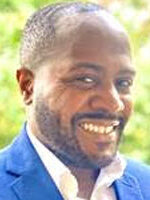 “CBS-owned WCBS New York has appointed Kevin Lightfoot assistant news director of the O&O as well as co-owned independent WLNY and their digital platforms,” TVNewsCheck, using the shorthand for owned-and-operated station, reported Tuesday. Lightfoot most recently was an executive producer at KTRK Houston. He has been president of the Jackson, Miss., chapter of the National Association of Black Journalists, and for three years has produced NABJ’s Salute to Excellence Awards show. CBS has been overhauling its TV station leadership since revelations that the highest-ranking station managers cultivated an environment that included bullying female executives and blocking efforts to hire and retain Black journalists. Johnny Green Jr., another Black journalist, was promoted in July to president and general manager of CBS’ local operations in New York.
“CBS-owned WCBS New York has appointed Kevin Lightfoot assistant news director of the O&O as well as co-owned independent WLNY and their digital platforms,” TVNewsCheck, using the shorthand for owned-and-operated station, reported Tuesday. Lightfoot most recently was an executive producer at KTRK Houston. He has been president of the Jackson, Miss., chapter of the National Association of Black Journalists, and for three years has produced NABJ’s Salute to Excellence Awards show. CBS has been overhauling its TV station leadership since revelations that the highest-ranking station managers cultivated an environment that included bullying female executives and blocking efforts to hire and retain Black journalists. Johnny Green Jr., another Black journalist, was promoted in July to president and general manager of CBS’ local operations in New York.
- “Facebook’s decisions in the name of being neutral and race-blind in fact come at the expense of minorities and particularly people of color,” according to an analysis of internal company documents obtained by The Washington Post, Elizabeth Dwoskin, Nitasha Tiku and Craig Timberg reported Sunday for the Post. They also wrote, “Civil rights groups have long claimed that Facebook’s algorithms and policies had a disproportionately negative impact on minorities, and particularly Black users. The . . . documents show that those allegations were largely true in the case of which hate speech remained online. . . .”

- The New York Amsterdam News, The St. Louis American, Black Voice News and the Atlanta Voice, all Black-owned newspapers, have joined to “give us a glimpse how COVID19 deepened the scourge of food apartheid,” Alison Bethel, vice president of Corps Excellence for Report for America, wrote for the Ground Truth Project. “Their collaboration — we hope the first of many — is believed to be the first time since the 1960s that Black-owned newspapers have pooled their resources and talent to produce a national story. And we’re very proud of that.”
- “Columbia’s Graduate School of Journalism is hiring a Director of Diversity, Equity, and Inclusion (DEI) to incorporate anti-racism initiatives into the school’s curricula,” Caroline Downey wrote Friday for National Review.
 “Scott M. Mills (pictured) has been promoted to chief executive officer of Black Entertainment Television,” parent company ViacomCBS announced Monday. “Mills served as president of BET for four years before being elevated to CEO. He has served in a variety of executive roles since joining BET in 1997,” Diane Haithman noted Monday for The Wrap.
“Scott M. Mills (pictured) has been promoted to chief executive officer of Black Entertainment Television,” parent company ViacomCBS announced Monday. “Mills served as president of BET for four years before being elevated to CEO. He has served in a variety of executive roles since joining BET in 1997,” Diane Haithman noted Monday for The Wrap.
- “Two journalists arrested at an Indigenous protest against a pipeline last week in western Canada were released Monday on bail, but journalism groups in the country condemned the decision to continue with contempt charges against them,” Ian Austen reported Monday for The New York Times. “Amber Bracken, who is a photographer, and a filmmaker, Michael Toledano, were arrested Friday as they covered a protest by Indigenous Canadians against construction of a natural gas pipeline. . . .” Meanwhile, the Native American Journalists Association complained that “In recent days we saw more media attention dedicated to the arrests of non-Indigenous journalists than the sovereignty story they are there to tell. . . .”
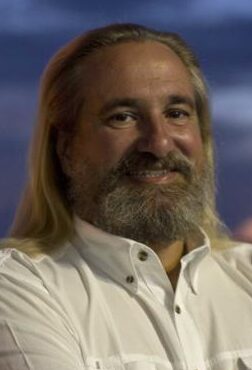 “Fernando González (pictured), who spent decades covering and directing major stories for The Associated Press across Latin America, from papal visits to border skirmishes, hurricanes and hostage standoffs, has died in Havana,” John Rice reported Monday for the AP. “González, 60, died at his home early Monday after suffering a heart attack, Cuba’s forensic medicine director said. . . .”
“Fernando González (pictured), who spent decades covering and directing major stories for The Associated Press across Latin America, from papal visits to border skirmishes, hurricanes and hostage standoffs, has died in Havana,” John Rice reported Monday for the AP. “González, 60, died at his home early Monday after suffering a heart attack, Cuba’s forensic medicine director said. . . .”
- The four-part docuseries “Black and Missing” debuted Tuesday on HBO, chronicling the journey of two sisters-in-law bringing awareness to Black missing persons cases ignored by law enforcement and national media,” Ruth Etiesit Samuel reported for HuffPost. She also wrote, “directed by Emmy-winning filmmaker Geeta Gandbhir and journalist Soledad O’Brien, the series spotlights different cases and the nuances that distinguish them, including the impacts of online grooming and domestic violence. Gandbhir said that in ‘Black and Missing,’ she sought to address structural, systemic issues like disability status, gender, class and more. . . .”
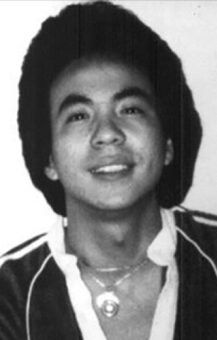 “Oscar-winning Nomadland director Chloé Zhao will help bring the overlooked tragedy of Vincent Chin’s (pictured) murder and the subsequent civil rights case to TV as she boards Participant’s limited scripted series as an executive producer,” Alexandra Del Rosario reported Thursday for Deadline. “Participant’s upcoming series, which is in development through an exclusive agreement with the Chin estate and executor Helen Zia, will be the only authorized telling of the watershed civil rights case following the 1982 murder. In the summer of 1982, the Chinese American engineer was assaulted at a bar and murdered by two white disgruntled autoworkers, who assumed Chin was of Japanese descent and blamed him for Japan’s success in the automotive world and for stealing their jobs. . . .”
“Oscar-winning Nomadland director Chloé Zhao will help bring the overlooked tragedy of Vincent Chin’s (pictured) murder and the subsequent civil rights case to TV as she boards Participant’s limited scripted series as an executive producer,” Alexandra Del Rosario reported Thursday for Deadline. “Participant’s upcoming series, which is in development through an exclusive agreement with the Chin estate and executor Helen Zia, will be the only authorized telling of the watershed civil rights case following the 1982 murder. In the summer of 1982, the Chinese American engineer was assaulted at a bar and murdered by two white disgruntled autoworkers, who assumed Chin was of Japanese descent and blamed him for Japan’s success in the automotive world and for stealing their jobs. . . .”
- On Dec. 2, as part of a collaborative workshop, the Durham, N.C.-based Scalawag is launching “The Press in Prison,” a guidebook intended to “help journalists integrate reporting from prison into their regular reporting cycles,” Jon Allsop writes Wednesday for Columbia Journalism Review. “In an introductory essay, Scalawag’s editors write that the population of incarcerated people is large enough to make ‘prison’ the fifth-largest city in the country: ‘In journalism’s heyday,’ they write, ‘it would call for at least two major daily newspapers, competing local television stations, and a public radio headquarters.’ . . .”
- Univision’s Sunday edition of “Despierta America” “is attracting a viewer with an average age of 60 — five years younger than the average viewer of NBC’s “Sunday Today” and ABC’s “Good Morning America,” and nine years younger than CBS’ “Sunday Morning,” Brian Steinberg reported Monday for Variety. “No surprise, the show has, since launching in mid-September, won over more Hispanic viewers than any of its English-language competitors. . . .”
- “Somali militant group al-Shabaab on Saturday evening claimed responsibility for killing a veteran journalist who campaigned against the activities of the proscribed group, in the latest attack on media freedom,” Aggrey Mutambo reported Sunday for the Nation Media Group in Kenya. “Abdiaziz Guled aka Afrika, the Director of state-owned Radio Mogadishu was killed in a targeted suicide bombing as he rode in a car with a colleague identified as Sharmarke Mohamed Warsame, the Director of Somali National TV, also a government media outlet. Somalia police said that a man wearing a suicide vest approached the vehicle in a busy street in Mogadishu as they left a restaurant and detonated it, killing Afrika instantly and wounding his colleague who is still fighting for his life at Mogadishu’s Madina Hospital. . . .”

- Tim Giago, writing on indianz.com, calls attention to a 2018 Time magazine piece, updated in 2019, by Sean Sherman, founder and CEO of The Sioux Chef. “Many of my indigenous brothers and sisters refuse to celebrate Thanksgiving, protesting the whitewashing of the horrors our ancestors went through, and I don’t blame them. But I have not abandoned the holiday. I have just changed how I practice it. The thing is, we do not need the poisonous ‘pilgrims and Indians’ narrative. We do not need that illusion of past unity to actually unite people today. Instead, we can focus simply on values that apply to everybody: togetherness, generosity and gratitude. And we can make the day about what everybody wants to talk and think about anyway: the food. . . . “
[btnsx id=”5768″]
To subscribe at no cost, please send an email to journal-isms+subscribe@groups.io and say who you are.
Facebook users: “Like” “Richard Prince’s Journal-isms” on Facebook.
Follow Richard Prince on Twitter @princeeditor
Richard Prince’s Journal-isms originates from Washington. It began in print before most of us knew what the internet was, and it would like to be referred to as a “column.” Any views expressed in the column are those of the person or organization quoted and not those of any other entity. Send tips, comments and concerns to Richard Prince at journal-isms+owner@
View previous columns (after Feb. 13, 2016).
View previous columns (before Feb. 13, 2016)
-
- Diversity’s Greatest Hits, 2018 (Jan. 4, 2019)
- Book Notes: Is Taking a Knee Really All That? (Dec. 20, 2018)
- Book Notes: Challenging ’45’ and Proudly Telling the Story (Dec. 18, 2018)
- Book Notes: Get Down With the Legends! (Dec. 11, 2018)
- Journalist Richard Prince w/Joe Madison (Sirius XM, April 18, 2018) (podcast)
- Richard Prince (journalist) (Wikipedia entry)
- February 2018 Podcast: Richard “Dick” Prince on the need for newsroom diversity (Gabriel Greschler, Student Press Law Center, Feb. 26, 2018)
- Diversity’s Greatest Hits, 2017 — Where Will They Take Us in the Year Ahead?
- Book Notes: Best Sellers, Uncovered Treasures, Overlooked History (Dec. 19, 2017)
- An advocate for diversity in the media is still pressing for representation, (Courtland Milloy, Washington Post, Nov. 28, 2017)
- Morgan Global Journalism Review: Journal-isms Journeys On (Aug. 31, 2017)
- Diversity’s Greatest Hits, 2016
- Book Notes: 16 Writers Dish About ‘Chelle,’ the First Lady
- Book Notes: From Coretta to Barack, and in Search of the Godfather
- Journal-isms’ Richard Prince Wants Your Ideas (FishbowlDC, Feb. 26, 2016)
- “JOURNAL-ISMS” IS LATEST TO BEAR BRUNT OF INDUSTRY’S ECONOMIC WOES (Feb. 19, 2016)
- Richard Prince with Charlayne Hunter-Gault, “PBS NewsHour,” “What stagnant diversity means for America’s newsrooms” (Dec. 15, 2015)
- Book Notes: Journalists Follow Their Passions
- Book Notes: Journalists Who Rocked Their World
- Book Notes: Hands Up! Read This!
- Book Notes: New Cosby Bio Looks Like a Best-Seller
- Journo-diversity advocate turns attention to Ezra Klein project (Erik Wemple, Washington Post, March 5, 2014)
When you shop @AmazonSmile, Amazon will make a donation to Journal-Isms Inc. https://t.co/OFkE3Gu0eK
— Richard Prince (@princeeditor) March 16, 2018
![]()

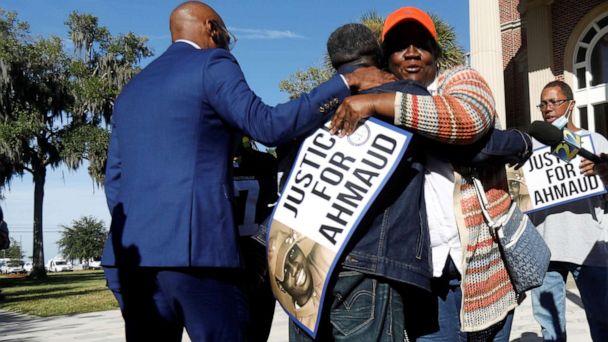
10 comments